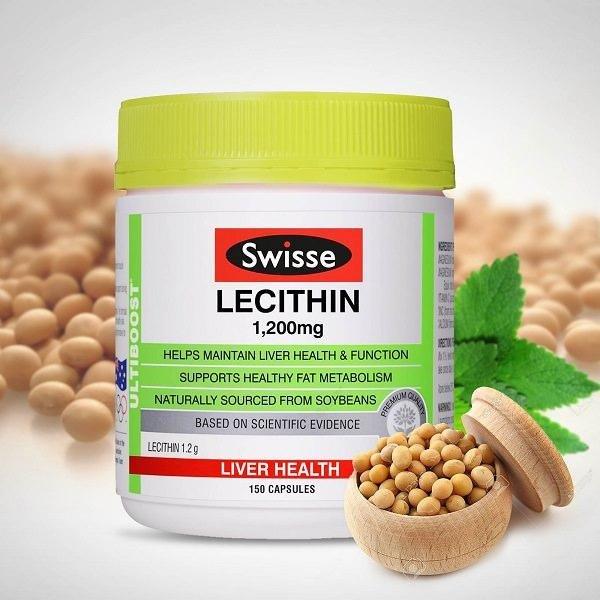Soy allergy: what you need to know

Soy allergy is one of the most common, along with cow's milk, eggs, peanuts, wheat, fish, and shellfish. This is the cause of 90% of food allergies. Soy allergy is one of a number of food allergies that begins early in life, usually before age 3, and usually resolves on its own by age 10. Here, Dr. SignsSymptomsList will help you better understand this allergic condition, its symptoms, causes, risk factors, diagnosis and effective methods of preventing them.
content
- 1. Soybean overview
- 2. Allergy symptoms
- 3. Causes, risk factors for soy allergy
- 4. Soybean products
- 5. Diagnosis and testing
- 6. Soy allergy treatment options
1. Soybean overview
Soybeans are in the legume family, which also includes foods like kidney beans, peas, lentils, and peanuts. Although primarily related to tofu, soy is also found in many unexpected processed foods, such as:
- Condiments like Worcestershire sauce and mayonnaise
- Natural and artificial flavors
- Vegetable broth and starch
- Meat substitutes
- Fillers in processed meat
- Frozen food
- Most Asian foods
- Several brands of cereals
- Some peanut butter

Soy is one of the most allergenic products
2. Allergy symptoms
Symptoms usually occur within minutes or hours. They can range from mild to severe and include:
- Stomachache
- Diarrhea
- Nausea, vomiting
- Runny nose, wheezing or difficulty breathing
- Itchy mouth
- Skin reactions including rash

A rash is also one of the symptoms of a soy allergy
- Itching and swelling
- Anaphylaxis (very rare).
If you have severe allergy symptoms, you could have a serious reaction called anaphylaxis. This condition requires immediate care. Signs of anaphylaxis include:
- Shortness of breath
- Severe drop in blood pressure
- Fast heart beat
- Dizziness, lightheadedness
3. Causes, risk factors for soy allergy
A soy allergy occurs when the body's immune system mistakes the harmless proteins found in soy as invaders and creates antibodies against them. The next time soy products are consumed, the immune system releases substances like histamine to protect the body. The release of these substances causes an allergic reaction.
Several things make a soy allergy more likely. These include:
- Family history of allergies
- Young
- Allergies to other foods such as wheat, beans or milk
4. Soybean products
a. Soy Lecithin
Soy lecithin is a non-toxic food additive. It is used in foods that require a natural emulsifier. Lecithin helps control crystallization of sugars in chocolate, improves shelf life in some products, and reduces splashing during frying of certain foods. Most people who are allergic to soy can tolerate soy lecithin. This is because soy lecithin often doesn't contain enough soy protein to cause allergic reactions.

Soy lecithin is a safe food additive
b. Soymilk
It is estimated that about fifteen percent of infants who are allergic to cow's milk are also allergic to soy. If babies are on formula, parents must switch to hypoallergenic formula. In extensively hydrolyzed formulas, the protein has been broken down so it is less likely to cause an allergic reaction. In the elemental formula, the protein is in its simplest form and is unlikely to cause a reaction.
See more Effects of soy for men
c. Soy sauce
In addition to soy, soy sauce also often contains wheat, which can make it difficult to decipher whether allergy symptoms are caused by soy or by wheat. If wheat is an allergen, consider tamari instead of soy sauce. It is similar to soy sauce but is usually made without the addition of wheat products. Allergy testing should be used to determine which allergens are present.
Soybean oil is generally free of soy protein and is generally safe to consume for people with a soy allergy. However, you should still discuss them with your doctor before using them.

Soybean oil is also a safe choice for people with allergies
5. Diagnosis and testing
There are several tests available to confirm soy and other food allergies. Your doctor may use one or more of the following if they suspect you have a soy allergy:
-
Skin prick test
A drop of the suspected allergen is placed on the skin and a needle is inserted into the top layer of skin so that a small amount of the allergen can penetrate the skin. If you are allergic to soy, a red bump similar to a mosquito bite will appear at the site of the bite.
-
Skin-in-the-skin test
This test is similar to a skin prick except that a large amount of the allergen is injected underneath the skin using a syringe. It may perform better than skin prick testing to detect some allergies. It can also be used if other tests do not provide a clear answer.
-
Radioactive Absorbent Test (RAST)
Blood tests are sometimes done on babies younger than one year old because their skin doesn't respond well to prick tests. The RAST test measures the amount of IgE antibodies in the blood.
-
Try the food
Food testing is considered one of the best ways to test for food allergies. You are given more and more of the suspected allergen under the direct supervision of your doctor, so that symptoms can be monitored and emergency treatment if needed.
-
Elimination diet
With an elimination diet, you stop eating a suspected food for a few weeks and then slowly add it to your diet, while recording any symptoms that appear.
6. Soy allergy treatment options
The only definitive treatment is to completely avoid soy and soy products. Allergy sufferers and parents of children with soy allergies must read labels to become familiar with ingredients that contain soy.
You should also ask about the ingredients in the dishes served in the restaurant. Even if you order a dish that is soy-free, you can still accidentally ingest them because soy ingredients are used very often in dishes from Asian cultures. Chefs can use the same utensils for soy and non-soy dishes. Make sure you make sure your food doesn't touch the soy in any way.

Be careful with meals by carefully studying the ingredients
Research is underway on the potential role of probiotics in preventing allergies, asthma, and eczema. Laboratory studies have been hoped, but there are not enough studies yet. Consider talking with your allergist about whether probiotics are helpful for you or your child.
In summary, at least 28 allergenic proteins in soy have been identified. However, most allergic reactions are caused by only a few. Check the labels of all forms of soy if you have a soy allergy. People with a soy allergy are also often allergic to peanuts, cow's milk, or birch pollen. The above article hopes to have provided you with some necessary knowledge about soy allergy, helping you to be more careful in preventing dangerous situations from occurring with this allergy.